Praise for How to Wake Up
This is a book for everyone.
Alida Brill, author of Dancing at the Rivers Edge
All-purpose advice as good as your grandmother gave you,
and just as straightforward and heartfelt.
Barry Boyce, editor-in-chief of Mindful magazine
Im often asked what book to read as a comprehensive introduction to
Buddhist practice. Now I have one: How to Wake Up.
Kevin Griffin, author of One Breath at a Time
A beautiful, wise, and practical book presenting the
Buddhas teaching for our contemporary world.
Gil Fronsdal, author of The Issue at Hand
The beauty of this book is how clear, wise, and helpful it is.
This is what literature is for. Its something to cherish and practice.
Kim Stanley Robinson, author of Shaman and 2312
This book is a gift, and an invitation to all who read it to awaken!
Joan Halifax, founding abbot, Upaya Zen Center
A fresh and articulate voice, truly grounded in authenticity,
interpreting ancient wisdom for our modern times.
Sylvia Boorstein, author of Its Easier Than You Think
Practical and insightful. In this book youll find a path to living
with greater ease and freedom, awakening to possibilities you
may not have known existed before.
Elisha Goldstein, PhD, author of The Now Effect
Follow these simple directions and bring yourself back to life.
Karen Maezen Miller, author of Hand Wash Cold
Before I was even half-finished with this book,
I wanted to give it to everyone I know.
Lynn Royster, founder of the Chronic Illness Initiative at DePaul University
A wonderful resource for all practitioners.
Mary Orr, founding teacher, Insight Santa Cruz
Clear, concise, and accessible to anyone wishing to
cultivate a path of greater awareness and understanding.
Christina Feldman, author of Compassion
This is a vital guide for every journey to finding our true home.
Ed and Deb Shapiro, authors of Be the Change
A wonderfully clear guide to engaging all the
joys and sorrows of our experience with awareness, grace, and wisdom.
Joseph Goldstein, author of A Heart Full of Peace
Accessible, useful, and filled with Bernhards personal insight and wisdom.
Joy H. Selak, author of You Dont Look Sick!
Toni Bernhard brings an elegant simplicity to a deep and nuanced
exploration of waking up in this very moment.
Mu Soeng, author of The Heart of the Universe
Toni writes with clarity and insight that makes ancient
Buddhist teachings accessible to our modern lives.
Danea Horn, author of Chronic Resilience
Toni deftly presents deep, profound teachings in an amazingly simple,
accessible way. Its like taking a powerful healing medicine
that goes down like a delicious milkshake.
James Baraz, author of Awakening Joy
A must-read for all.
Melody T. McCloud, MD, author of First Do No Harm
A quietly and deeply optimistic book about how to find a sense of
freedom within the ups and downs of any human life.
Vidyamala Burch, cofounder and director of Breathworks CIC
We should all seek to emulate the way Toni Bernhard lives her life.
The first step: read this book.
Alex Lickerman, MD, author of The Undefeated Mind
A wonderful and easy-to-follow guide that will help you learn the skills of
mindfulness and compassion, ultimately leading to true happiness.
Kristin Neff, PhD, author of Self-Compassion

Wisdom Publications
199 Elm Street
Somerville, MA 02144 USA
www.wisdompubs.org
2013 Toni Bernhard
All rights reserved.
No part of this book may be reproduced in any form or by any means, electronic or mechanical, including photography, recording, or by any information storage and retrieval system or technologies now known or later developed, without permission in writing from the publisher.
Library of Congress Cataloging-in-Publication Data
Bernhard, Toni.
How to wake up : a Buddhist-inspired guide to navigating joy and sorrow / Toni Bernhard.
pages cm
Includes index.
ISBN 1-61429-056-3 (pbk. : alk. paper)
1. Religious lifeBuddhism. I. Title.
BQ5395.B47 2013
294.3444dc23
2013000338
ISBN 978-1-61429-056-8; eBook ISBN 978-1-61429-067-4
17 16 15 14 13
5 4 3 2 1
Cover design by Phil Pascuzzo. Interior design by Gopa&Ted2. Set in Sabon Lt Std 10.8/16.
Wisdom Publications books are printed on acid-free paper and meet the guidelines for permanence and durability of the Production Guidelines for Book Longevity of the Council on Library Resources.
Printed in the United States of America.
 This book was produced with environmental mindfulness. We have elected to print this title on 30% PCW recycled paper. As a result, we have saved the following resources: 19 trees, 9 million BTUs of energy, 1,595 lbs. of greenhouse gases, 8,647 gallons of water, and 579 lbs. of solid waste. For more information, please visit our website, www.wisdompubs.org. This paper is also FSC certified. For more information, please visit www.fscus.org.
This book was produced with environmental mindfulness. We have elected to print this title on 30% PCW recycled paper. As a result, we have saved the following resources: 19 trees, 9 million BTUs of energy, 1,595 lbs. of greenhouse gases, 8,647 gallons of water, and 579 lbs. of solid waste. For more information, please visit our website, www.wisdompubs.org. This paper is also FSC certified. For more information, please visit www.fscus.org.
For my granddaughters Malia and Camden with all my love
May your joys be many.
May you meet sorrow with compassion.
May you find peace and contentment.
May you become buddhas.
Table of Contents
It is exactly because the Buddha was a human being that countless buddhas are possible.
THICH NHAT HANH
T HE TITLE of this introductionten thousand joys, ten thousand sorrowsis attributed to the fourth-century BCE Taoist sage Chuang Tz. The number ten thousand stands for unlimited. The phrase points to the seemingly countless joys and sorrows in everyones lifehow its easy at times and difficult at times, fulfilling at times and frustrating at times, happy at times and sad at times. Life is a mixture of pleasant and unpleasant experiences, of pleasure and painphysically, mentally, and emotionally.
The Buddhas life also had its joys and sorrows. Despite those
sorrows, he became the awakened one (which is what the word buddha means). As I understand the Buddhas teachings, every moment that we engage our life fully as it is, we have the potential to awaken to a peace and well-being that are not dependent on whether a particular experience is joyful or sorrowful. Moreover, each moment is followed, in the blink of an eye, by another moment in which awakening is possible.
I dont believe there was anything supernatural about the Buddhas awakening. After meditating for seven days and nights under a fig tree and carefully observing his experience, he woke up to what it means to be humanboth its stark realities and the potential it holds for us to find peace and contentment.
Building on this insight, he left us detailed instructions for awakening. These instructions can be found in his teachings on wisdom, mindfulness, and open-heartedness. They are the three subjects of this book. The path of awakening is available to all of us, no matter what our religious or metaphysical beliefs are and no matter how difficult our circumstances may be.
In my own life, it has been the difficulties and struggles that motivated me to look deeply at the Buddhas teachings on awakening in order to find some measure of peace and contentment. Since 2001, the most challenging difficulty Ive faced is chronic illness. In the summer of 2001, I had the next twenty years of my life planned. Id be teaching law at the University of California at Davis, as Id already been doing for almost twenty years. Id continue to be active in the life of a boy in Child Protective Services for whom Id been appointed as mentor. Id travel to visit my children and their families. And Id attend as many Buddhist meditation retreats as I could.
Next page
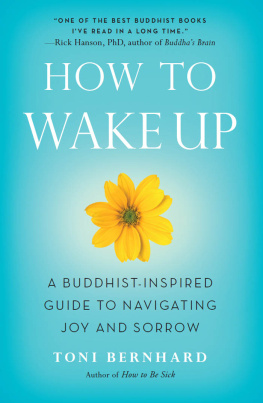
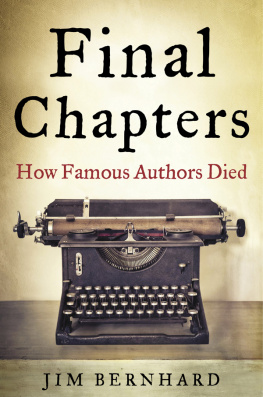
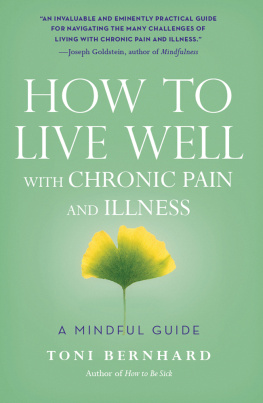
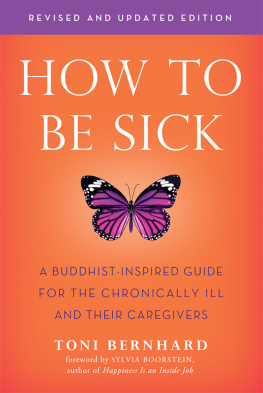


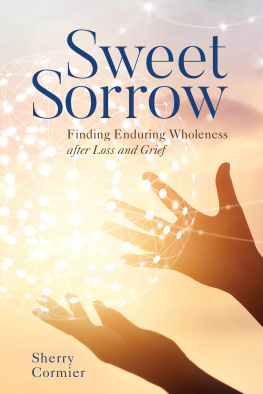
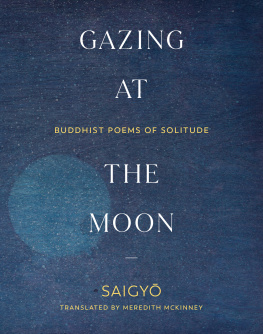
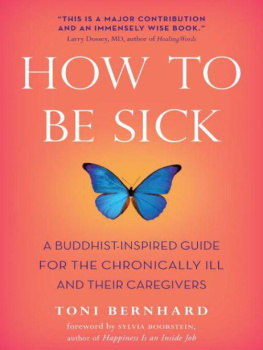

 This book was produced with environmental mindfulness. We have elected to print this title on 30% PCW recycled paper. As a result, we have saved the following resources: 19 trees, 9 million BTUs of energy, 1,595 lbs. of greenhouse gases, 8,647 gallons of water, and 579 lbs. of solid waste. For more information, please visit our website, www.wisdompubs.org. This paper is also FSC certified. For more information, please visit www.fscus.org.
This book was produced with environmental mindfulness. We have elected to print this title on 30% PCW recycled paper. As a result, we have saved the following resources: 19 trees, 9 million BTUs of energy, 1,595 lbs. of greenhouse gases, 8,647 gallons of water, and 579 lbs. of solid waste. For more information, please visit our website, www.wisdompubs.org. This paper is also FSC certified. For more information, please visit www.fscus.org.